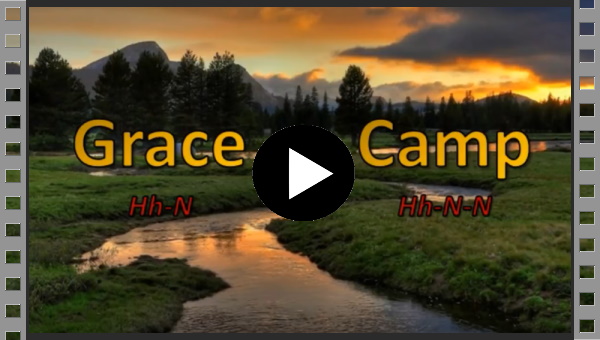How to do a Hebrew Word Study without Knowing Hebrew
Online video course - Take at your pace
By Jeff A. Benner
Learn the methods to uncover the deeper meanings of Hebrew words behind the English translations.
When most people do a word study they will open up Strong's dictionary, look up the word they are studying, read that definition and then move on. But there is much more to a thorough study of a Hebrew word, which will open up a whole new world to the reader. This course will teach you how to dig deeper into the meanings of the words of the Bible to uncover the more in-depth understanding of the words in the Bible. Even if you do not know any Hebrew, the resources and tools available to you will provide you with a wealth of information.
“If you are serious about understanding what the Bible is saying, then take this course.”
-- Jerry Adams
“Great class packed full of information that completed the dots... This put a lot into perspective.”
-- Michael Neuhaus
“This course goes deep into the Hebrew of the Bible yet remains very easy to follow.”
-- Matthew Baker

3 hours Video
Closed Captions
30-Day Money-Back Guarantee
Lifetime access
Certificate of Completion
Shalom, my name is Jeff Benner. I am the founder of the Ancient Hebrew Research Center and have written over a dozen books on Biblical Hebrew including the Mechanical Translation of Genesis and Exodus and the Ancient Hebrew Lexicon of the Bible. Through years of study, research and teaching others, I have developed a method of studying Hebrew words that will benefit you in seeking a deeper understanding of the Bible.
The Hebrew Bible (called the Tanakh by Jews and the Old Testament by Christians) was written by Hebrews whose language and culture was very different from our own. A language is closely tied to the culture of those who speak the language. In the case of the Hebrews, who were a nomadic and agrarian people, their language was closely connected to that culture and lifestyle. When we read the Bible, our 20th Century culture and lifestyle will often influence how we interpret it, therefore it is essential that we read and study the Bible from their culture and perspective so that we can better understand the Bible.
What are the requirements?- There are no requirements for taking this course, except for a desire to expand your knowledge of the Bible.
- No materials are required to take this course as you will be provided everything you need, but if you have a Bible, dictionary, lexicon, interlinear or other word study related material will be helpful.
- Define Hebrew words based on their original cultural context
- Use a Bible concordance and dictionary to define Hebrew words and roots.
- Know how to use various Hebrew lexicons to do a study of Hebrew words and roots.
- Find the definition of a word based on the context of how it is used in the Bible.
- Have a basic understanding of the philosophy and thought process of the Hebrew people allowing for proper Biblical interpretation.
- Use E-Sword to do an in-depth study of Hebrew words.
- Know how to navigate through a Hebrew-English interlinear Bible.
- Have a digital library of free resources that will assist you in digging into the Hebrew language of the Bible.
- This course will interest anyone who desires to dig deeper into the meaning of the words in their Bible.
- This course is designed to be used by anyone, even if they have no prior knowledge or instruction in Hebrew.
- The methods demonstrated in this course will benefit both beginning and advanced students in Hebrew and Biblical Studies.
- This course focuses on Biblical Hebrew, the language of the Tanach (Old Testament).
- This course is not suited for Biblical Greek, the language of the New Testament.

Lecture Previews
Return to Top










© Jeff A. Benner


